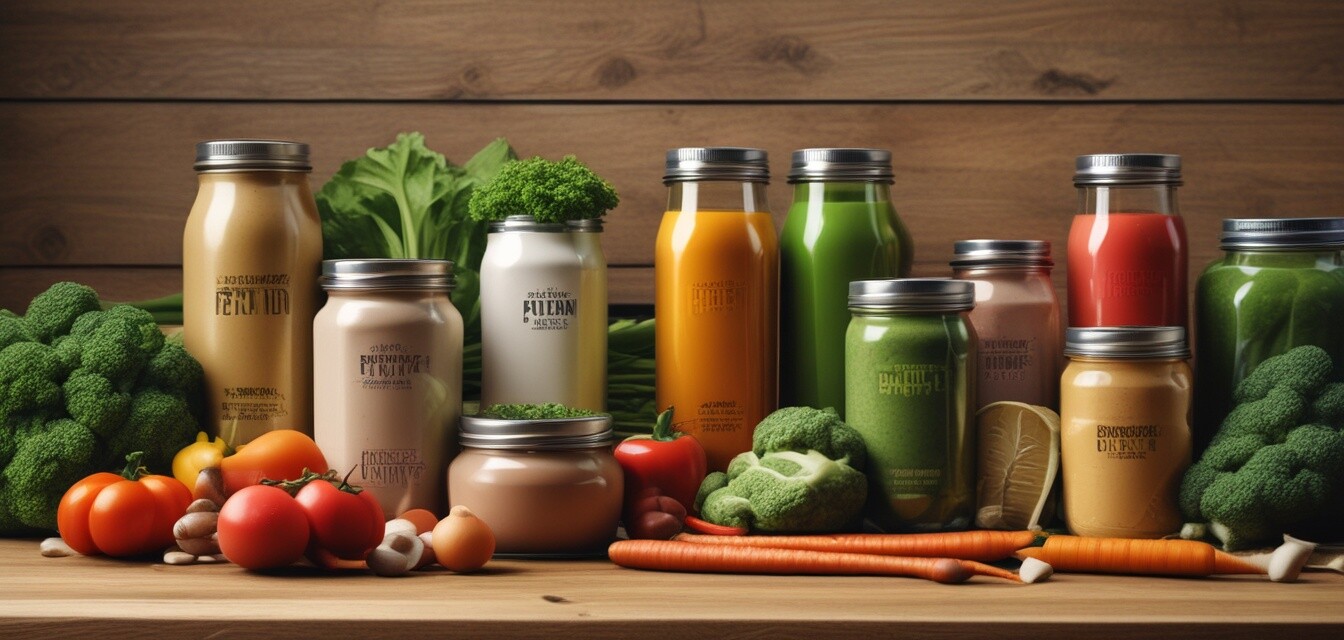
Building a Balanced Diet with Protein Supplements
Key Takeaways
- Protein supplements can enhance your diet but should not replace whole foods.
- Choose sustainably sourced protein options to support your health and the environment.
- Combine protein supplements with a variety of nutrients for a well-rounded diet.
- Incorporate protein supplements mindfully into meals and snacks.
- Stay informed about the brands and their sustainability practices.
In today's fast-paced world, maintaining a balanced diet can be a challenge. Many people turn to protein supplements as a convenient way to meet their dietary needs while also considering sustainability. In this article, we'll explore how to effectively incorporate protein supplements into a balanced diet, all while keeping environmental impact in mind.
The role of protein in a balanced diet
Protein is a key macronutrient that plays a vital role in various bodily functions. It helps repair tissues, supports immune function, and is crucial for muscle growth and maintenance. Here’s a quick look at the essential roles of protein:
| Protein Function | Description |
|---|---|
| Tissue Repair | Essential for healing wounds and recovering from injuries. |
| Muscle Growth | Supports the development of lean muscle mass. |
| Enzyme Production | Necessary for creating enzymes that facilitate bodily reactions. |
| Hormonal Balance | Influences hormone levels and communications in the body. |
Types of protein supplements
When selecting protein supplements, it’s essential to know the various types available on the market:
- Whey Protein: Fast-absorbing and rich in essential amino acids.
- Casein Protein: Slow-digesting, ideal for overnight use.
- Plant-Based Proteins: Includes options from peas, rice, and hemp, great for vegan diets.
- Egg Protein: High-quality protein with good amino acid profile.
Incorporating protein supplements sustainably
Sustainable practices are critical as we make choices about our diets. Here are some tips to ensure that your use of protein supplements aligns with sustainability goals:
Tips for sustainable protein supplement use
- Choose brands that prioritize sustainable sourcing and ethical practices.
- Consider plant-based options which generally have a lower environmental footprint.
- Avoid over-reliance on supplements; aim to balance with whole foods.
- Purchase in bulk to reduce packaging waste and support minimalism.
Meal ideas with protein supplements
Here are some ideas for incorporating protein supplements into your meals:
| Meal | Ingredients | Protein Supplement Type |
|---|---|---|
| Smoothie Bowl | Bananas, spinach, almond milk, nut butter | Plant-based protein |
| Protein-Packed Pancakes | Oats, banana, eggs, almond milk | Whey protein |
| Veggie Stir-Fry | Broccoli, bell peppers, tofu, brown rice | Pea protein |
| Overnight Oats | Oats, chia seeds, almond milk, berries | Casein protein |
Mindful consumption and awareness
As you adopt protein supplements, it’s important to maintain a mindful approach. Being aware of the implications of our dietary choices helps retain both personal health and ecological balance. Here are additional steps to consider:
- Research brands to ensure they utilize eco-friendly packaging.
- Look for certifications that indicate sustainability efforts.
- Engage with local producers when possible.
- Stay updated on trends in sustainable diets.
Conclusion
Incorporating protein supplements into your diet can be beneficial when done responsibly. By choosing sustainable options and combining these supplements with nutrient-dense whole foods, you can create a balanced diet that is good for your health and the planet. For more information on sustainable supplements, check out our Sustainability Tips.
Pros
- Supports dietary needs when used wisely.
- Provides convenience for busy lifestyles.
- Can help diversify protein sources.
Cons
- May lead to over-reliance on supplements.
- Potential environmental impact of certain brands.
- Can be costly compared to whole foods.